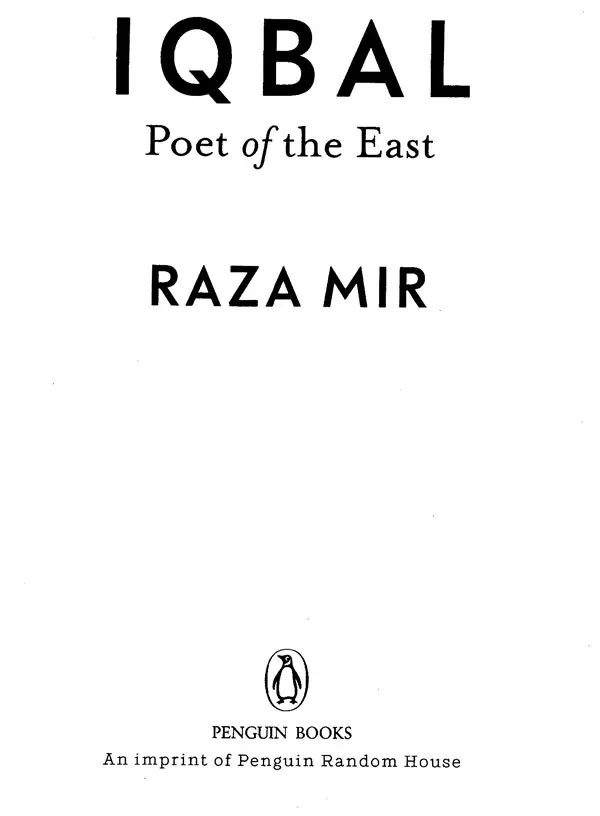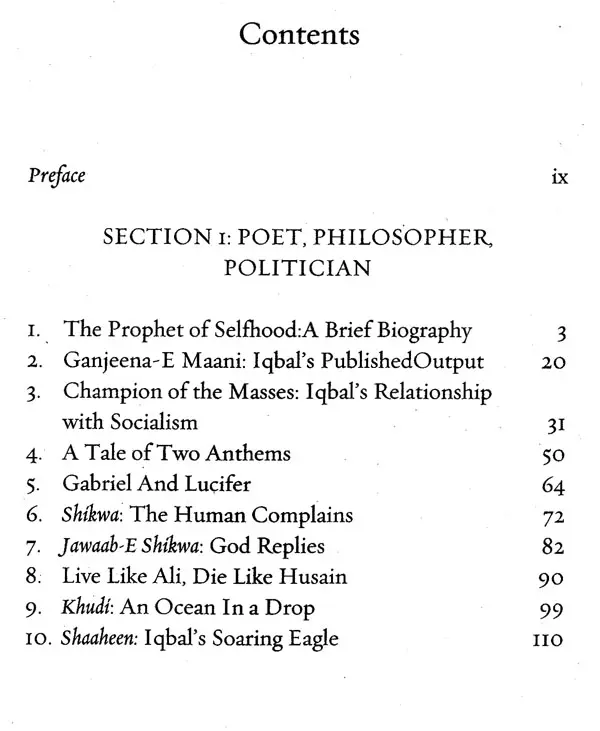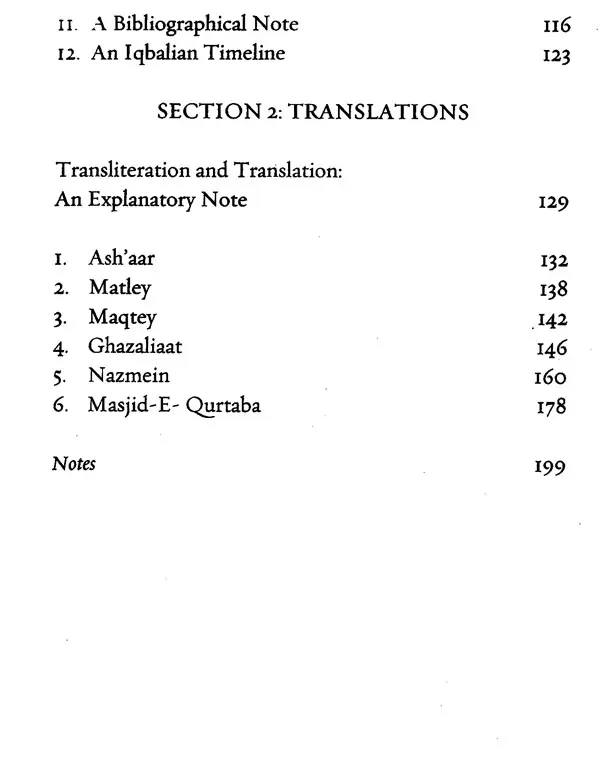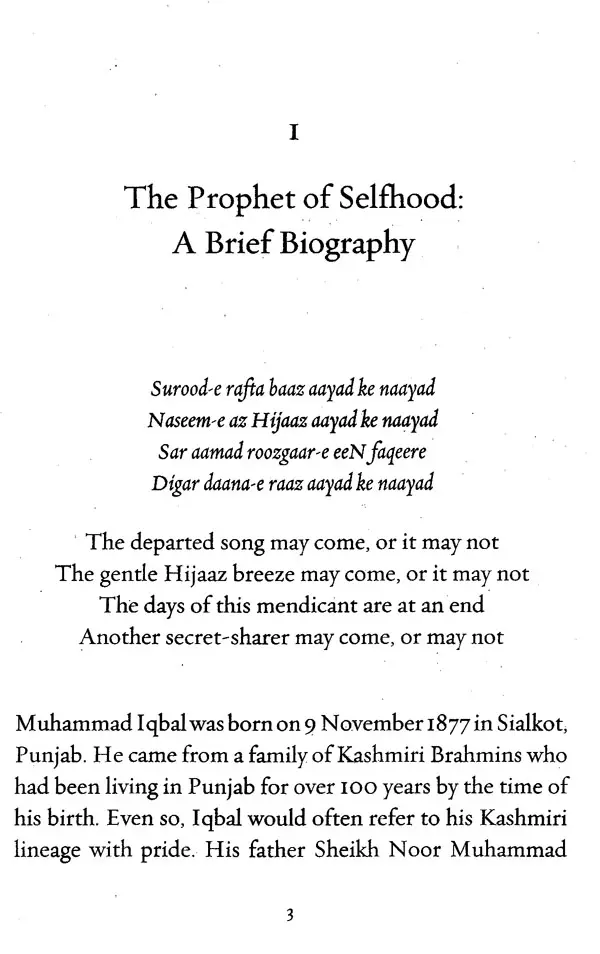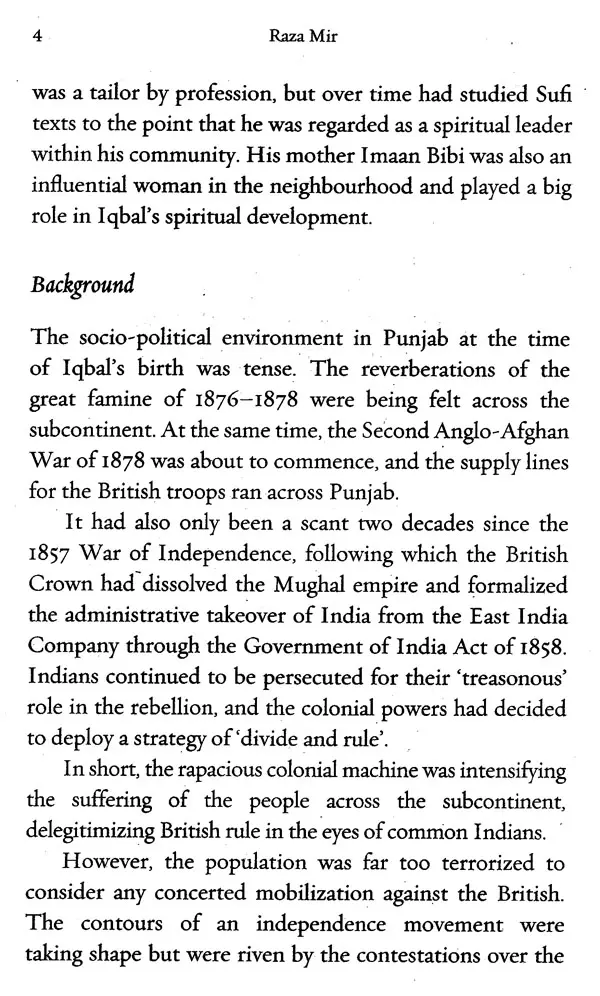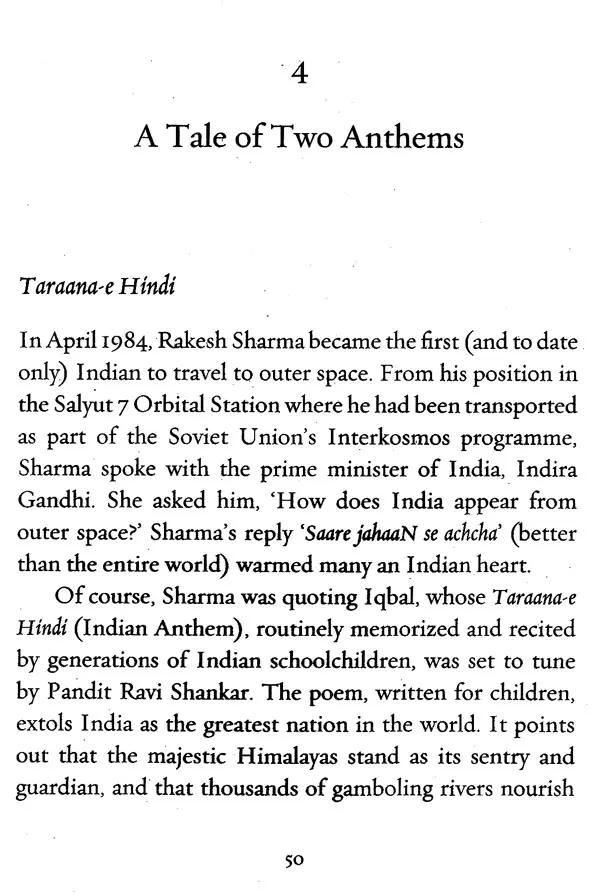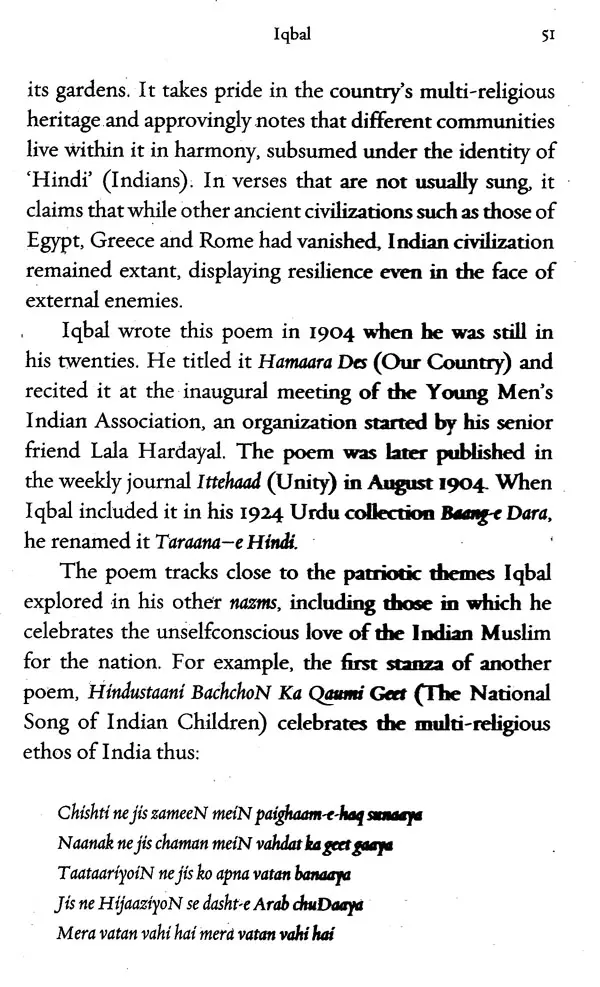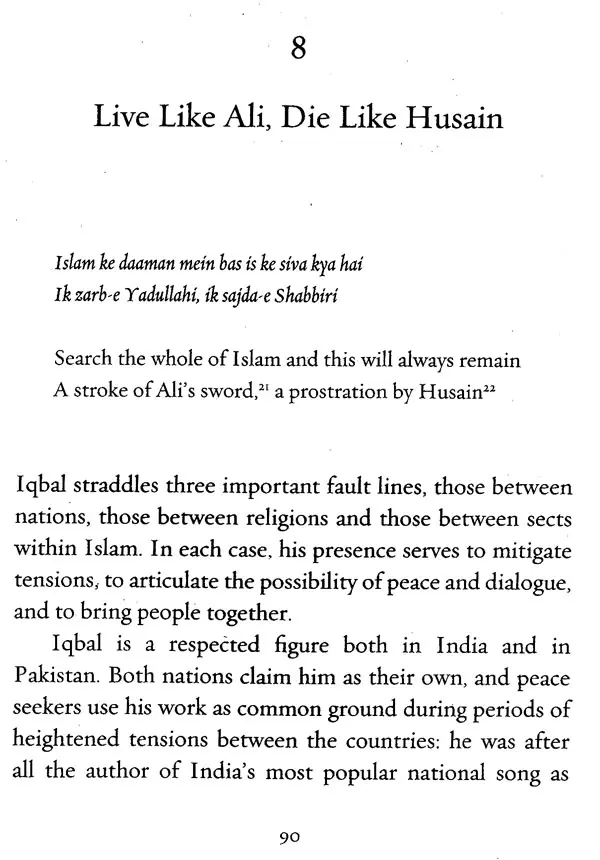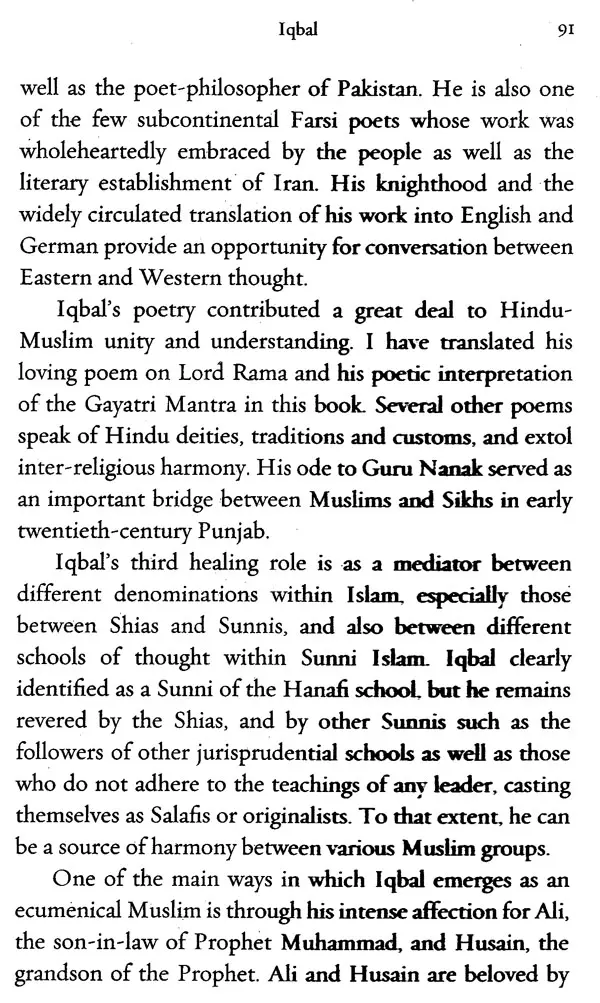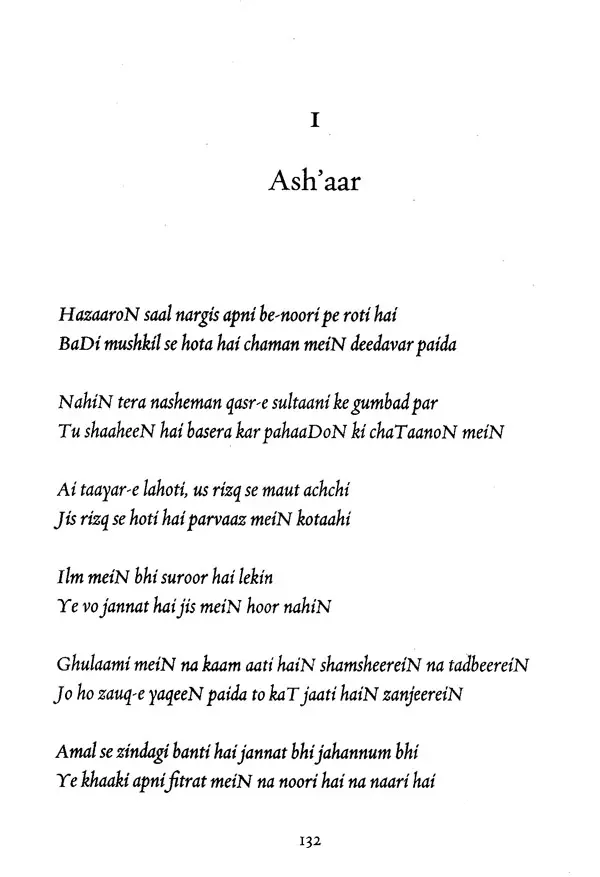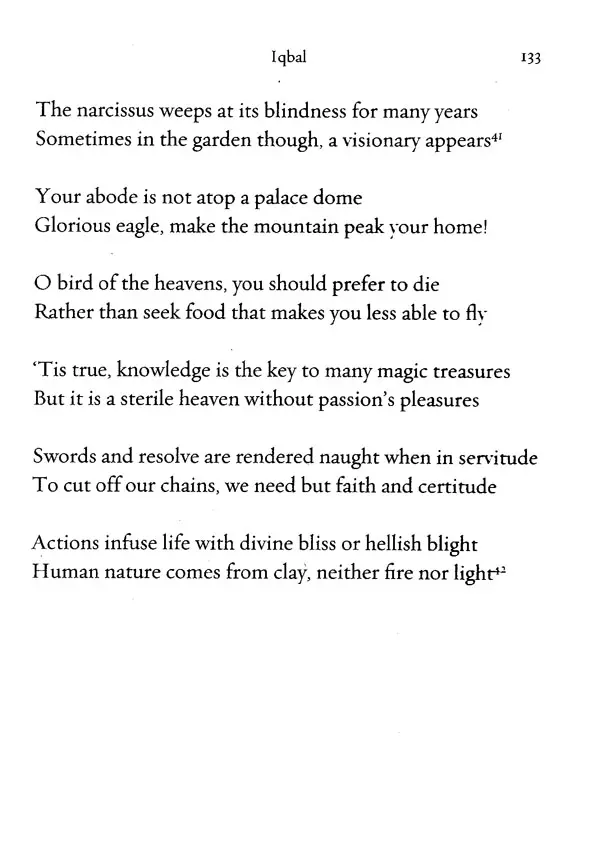
Iqbal- Poet of The East
Book Specification
| Item Code: | UAV794 |
| Author: | Raza Mir |
| Publisher: | Penguin Random House India Pvt. Ltd. |
| Language: | English |
| Edition: | 2022 |
| ISBN: | 9780143452041 |
| Pages: | 206 |
| Cover: | PAPERBACK |
| Other Details | 8.00 X 5.00 inch |
| Weight | 170 gm |
Book Description
Allama Muhammad Iqbal (1877-1938), also known as the ‘Poet of the East’, earned a doctorate in philosophy from the Ludwig-Maximillian University at Munich, and wrote his most evocative poems in Urdu, a language that was not his mother tongue. He counted Jawaharlal Nehru as one of his fans, and earned Mahatma Gandhi’s respect as well. His funeral was attended by 70,000 people, which included colonialists and freedom fighters, socialist atheists and Islamic fundamentalists, Indian nationalists and Muslim Leaguers, reflecting his ability to defy categorization.
The book is a relatively short volume that introduces Iqbal to the millennial generation. It is written in a relatively contemporary language, similar to Ghalib: A Thousand Desires. The bulk of the book will comprise a temporal and intellectual biography of Iqbal, while the rest will include a detailed discussion of one of Iqbal’s poems, a translation of some of his well-known poems, and a sampling of some of his famous verses.
It will not for the Iqbal-expert or the Urdu-expert, but for a relative newcomer.
Raza Mir
grew up in Hyderabad, and teaches management at William Paterson University, USA. He is the author of The Taste of Words: An Introduction to Urdu Poetry and the co-author of Anthems of Resistance: A Celebration of Progressive Urdu Poetry.
Allama Muhammad Iqbal (1877-1938), also known as the 'Poet of the East', is one of the most written-about Urdu poets in English, perhaps even more than Ghalib. Listing the hundreds of books devoted to him would be far too immense a task; indeed, there exist a few books of Iqbal bibliographies devoted to that very task' Several books on him are in English, many of them extremely erudite. The Iqbal Academy maintains a detailed website devoted to him, and he has his own YouTube channel as well. Iqbal's couplets circulate often on social media. Does the world need another book on Iqbal?
By way of making a case for this one, I would contend that there is no book on Iqbal that targets a new generation. Like my earlier book on Ghalib,' this intervention has ambitions to bridge the chasm between interest in Iqbal and knowledge about him. I have not written this book for the Iqbal-expert or the Urdu-expert, but for a relative newcomer. I have, however, tried not to trade depó for simplicity.
Iqbal earned a doctorate in philosophy from the University of Munich, and wrote his most evocative poems in Urdu, a language that was not his mother tongue. He was a great believer in the as-yet-uncreated nation of Pakistan, but counted Jawaharlal Nehru, later to become India's first prime minister, among his fans. Over 70,000 people attended his funeral. They included colonial administrators and the freedom fighters who opposed them, atheist socialists and Islamists, Congresswalas and Muslim Leaguers, reflecting his ability to defy categorization.
He is best known in India as the author of the Taraana - e - Hindi (Song of India): Saare jahaaN se achcha HindostaN hamaara (Of all the lands of the world, our India is the best). Across the border, he is celebrated as the spiritual father of Pakistan. Given that he died before the subcontinent was partitioned, both positions carry much credibility in the eyes of their adherents.
**Contents and Sample Pages**
